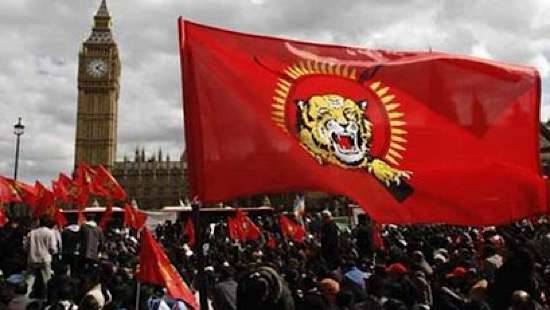Reply To:
Name - Reply Comment

The UK Proscribed Organisations Appeals Commission (POAC) ruled to uphold the proscription of the Liberation Tigers of Tamil Eelam (LTTE), rejecting an appeal to remove the group from the list of banned organizations under the Terrorism Act 2000.
This decision ensures that the LTTE remains a proscribed organization in the UK.
The Transnational Government of Tamil Eelam (TGTE), which advocates for an independent Tamil state in northeast Sri Lanka, had applied for the ban on the LTTE to be lifted. Unlike the LTTE, the TGTE is not proscribed in the UK, as it seeks to achieve its goals through non-violent means. However, the LTTE's international network aims to leverage such de-proscription efforts to potentially revive the group.
The LTTE was initially added to the list of proscribed organizations on March 29, 2001. The Sri Lankan civil war ended violently in May 2009 with the death of LTTE leader Vellupillai Prabhakaran and the defeat of LTTE military forces. Following the conflict, 11,000 LTTE cadres and supporters underwent rehabilitation and have since been subject to monitoring and reporting conditions.
Despite the LTTE's military defeat, the group's international network remains intact, according to assessments by the Joint Terrorism Analysis Centre (JTAC). These assessments indicate that from 2012 to 2017, there have been activities suggesting efforts to develop terrorist capabilities and revive the LTTE.
The TGTE's appeal was based on four grounds: the LTTE's current incapability of being proscribed, lack of reasonable grounds for the belief that the LTTE is "concerned in terrorism," errors in the Secretary of State's discretion to maintain proscription, and the argument that continued proscription violates the appellants' rights to freedom of expression, assembly, and association.
However, the legal framework under the Terrorism Act 2000 defines "organization" broadly, allowing for proscription if an entity commits, prepares for, promotes, or encourages terrorism. Despite the LTTE's lack of a centralized command structure post-2009, JTAC reports indicate that individuals and groups within the network have been engaged in activities indicating an intent to revive the group.
The Commission highlighted that even an organization currently inactive but harboring an intent to reactivate its military wing meets the statutory test for proscription. Thus, the LTTE's continued proscription aligns with the need to support the global fight against terrorism and protect UK nationals.